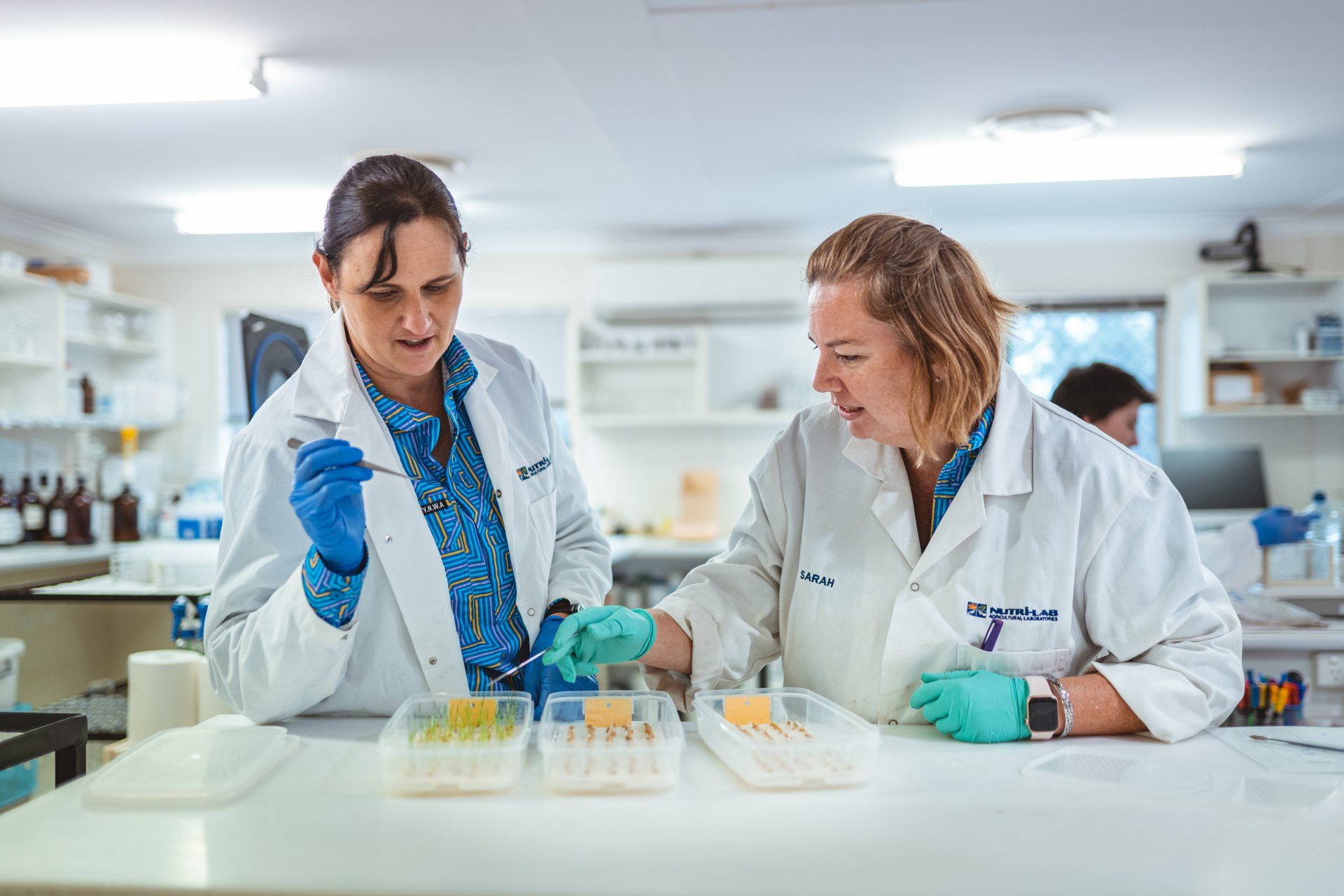Seed Testing
Why do I need seed testing?
Seed evaluation plays a fundamental role in determining a seed lot’s potential and planting viability. By evaluating germination and soil emergence vigour we can assess the seed quality. Seed quality can be affected by several different environmental influences including development before harvest, storage, heat disease and pests. Its behaviour cannot be predicted with certainty without testing. From seed analysis key decisions may be made regarding the seed lot. These decisions range from seed use (cropping or feed) to planting rates. Every year we find several seed lots that produce less than 40% viable seeds – this devastating figure was not always predicted, and a surprise once tested.

When and how to collect seed samples for testing
The optimum time to sample is at or just prior to seed cleaning/grading. This ensures the number of times the seed is going to be handled after the test is kept to a minimum. If the seed viability is questionable then a sample should be tested as soon as possible to reduce time and cost if the seed lot needs to be replaced. It also allows enough time to obtain replacement seed - and to get that tested as well! If a seed test is completed directly after harvest, care must be taken to reduce seed damage through handling and environmental conditions. Seed can be mechanically damaged, but also storage conditions are vitally important. It is also recommended to test again before planting to ensure there has not been any degradation due to environmental conditions.

